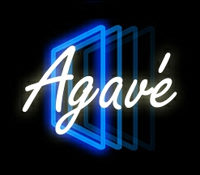AGAVE Research Funded 2001-2004!
August 8th, 2001 - September 1st, 2004
Categories: Devices, Software, Tele-Immersion

About
The National Science Foundation has awarded a three-year, $700,000 equipment grant to the Electronic Visualization Laboratory (EVL) at the University of Illinois at Chicago to develop the AGAVE: Access Grid Autostereo Virtual Environment.
AGAVE (pronounced agavay) will be a viable, scalable visualization instrument easily adaptable to the scientist’s workspace - particularly those using the Access Grid (a multi-screen environment that supports large-scale, distributed group meetings connected by very-high-speed networks). The Access Grid is an Alliance project anchored by Argonne National Laboratory.
The goal of AGAVE is to augment the Access Grid to allow national and international collaborators to immersively share three-dimensional content, such as scientific and engineering visualizations, without polarized or shutter glasses. EVL, as an Access Grid node and development partner, will build AGAVE to be deployable as a separate display screen placed along side the Access Grid display screens, so that standard 2D content can be viewed simultaneously with 3D content.
To this end, EVL has prototyped the Varrier™ technique for displaying high-quality, computed autostereograms-in-motion, made possible by the advent of relatively high-resolution, dimensionally stable LCD panel technology. With PC graphics in clusters now allowing affordable design and implementation of arrays of displays, very high resolution can be achieved by tiling these panels.
Initial prototyping efforts to augment the Access Grid for visualization has yielded a low-cost, PC-driven passive-stereo projection system, which allows distributed audiences to view and interact with 3D immersive content, but still requires the use of passive polarization glasses similar to those worn to view 3D films.
The AGAVE, tiled, high-resolution autostereo display will be built and tested over the next three years, and will integrate well with high-speed networks.
About EVL
The Electronic Visualization Laboratory at the University of Illinois at Chicago is the nation’s oldest interdisciplinary graduate laboratory offering degrees in electronic visualization. Since inventing the CAVE® Virtual Reality Theater in 1991, EVL’s focus has been the development and deployment of software, hardware, networking, and communications tools in support of collaborative tele-immersive virtual reality applications.
About the Alliance
The National Computational Science Alliance (“The Alliance”) is a nationwide partnership of more than 50 academic, government, and business organizations working together to prototype an advanced computational infrastructure for the new century. This infrastructure, called the Grid, is rapidly developing into a ubiquitous, pervasive, national-scale information infrastructure which links supercomputers, virtual environments, scientific instruments, large databases and research teams.